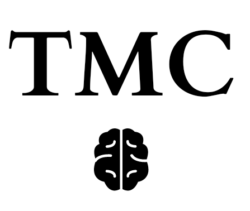Food and mood.
Energise your mind with mood food.
The idea that ‘we are what we eat’ goes back centuries. But it’s a bit simplistic. More accurately, we are what our bodies make of what we eat – our unique genetic make-up predisposes us to metabolise food differently. Even more accurately, our state of mind is a result of what we eat (over time) and how we feel can influence what we choose to eat – and the circle goes on. This close relationship between nutrition and mental well-being is increasingly being seen as a vital element in psychotherapy and psychiatry.
Nutritional psychology is the science of how nutrients affect mood and behaviour. It also includes an understanding of how food intake impacts stress, energy, sleep, body image, cognition, medication needs and behavioural disfunction.
These dietary influences on mood and behaviour have an important impact on the diagnosis and treatment of mental health disorders; it’s another layer for understanding a patient as a whole interconnected person – not just a list of symptoms.
The holistic nature of the mind and body is highlighted by the latest exciting studies on the role of the gut and its trillions of bacteria – the microbiome.
Microbiome
The microbiome, in many ways, acts as a ‘second brain’ which has billions of nerve connections and is linked to our head brain via the superhighway of the vagus nerve.
The gut is hugely important in the production of the neurotransmitter serotonin. It is estimated that 90% of the body’s serotonin is made in the digestive tract.
This is highly significant given that 1 in 10 adults in the UK is on antidepressants; four million people using these pills long term. Most of these antidepressants are selective serotonin reuptake inhibitors (SSRIs). These SSRIs are aimed at easing depression by increasing levels of serotonin in the brain.
Nutritional balance – the mood food
Perhaps it’s not the brain we should be targeting. Many argue that improving gut health by widening the array of good bacteria through better nutrition would be more productive. (Cheaper for the NHS and with fewer side-effects).
There is active and intense debate surrounding what constitutes the most effective nutritional balance.
The difficulty lies in the fact that everyone is unique, humans are not mice, digestive processes are mind-boggling complex, research results are often conflicting, the whole area is prone to passing fads and fashions, long-term human tests are difficult. What works for some people doesn’t work for others and not all the time.
Certain functions are well established though — for example, the consumption of sugar, the insulin response and type-2 diabetes. There’s little doubt that rising levels of sugar consumption across the world are associated with increased incidence of diabetes and obesity.
Added to this is that modern, developed societies tend to produce individually raised levels of stress. Sustained stress results in increased production of cortisol which, in turn, produces a craving for sugar – in other words, a damaging and vicious circle.
The resulting obesity and general ill-health can then trigger self-loathing and depression. This circle needs to be interrupted to return to balance and well-being.
Good Nutrition
All this is especially true for children. Good nutrition is essential from the earliest possible age. Indeed, mothers should be given as much nutritional guidance during pregnancy. Those nine months in the womb have been shown to have lasting impact right through adulthood (and some would argue into future generations.)
Parents, schools, doctors, hospitals, food manufacturers, take-aways, restaurants and local authorities all have a responsibility. This is especially true in areas of economic deprivation and low educational attainment.
Individual responsibility matters just as much. Keep it simple.
Eat mindfully. Eat food. Not too much. Mostly plants.
Its what we call ‘mood food.

